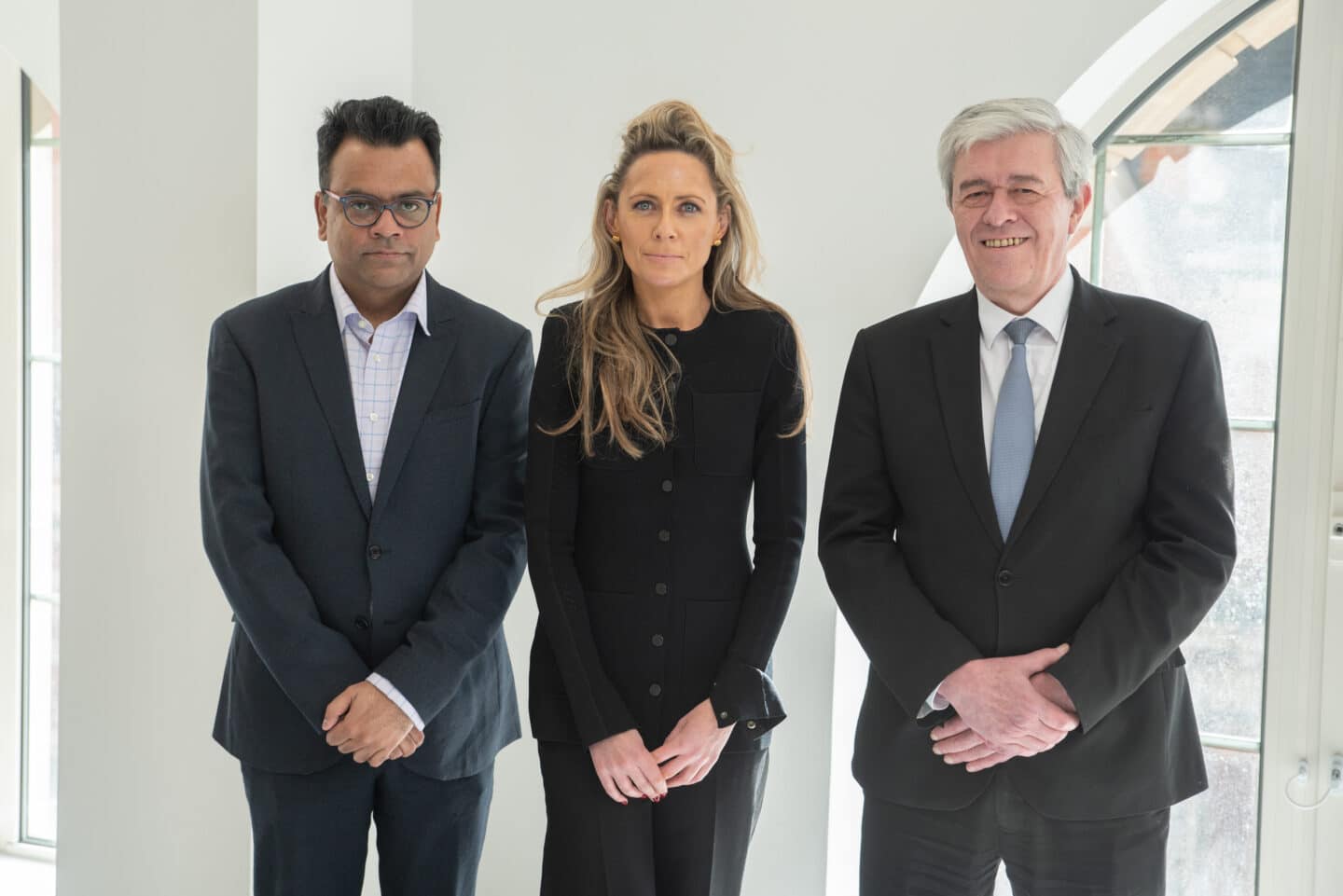From Research to Industry: Intrinsic's Semiconductor Transformation
with Tony Kenyon, CSO & Co-founder Intrinsic
Founder Stories University Edition is a collection of fireside chats with the leading academic founders backed by the AlbionVC team. Having invested in over 30 university spinouts from the leading UK universities including UCL, Imperial College London, University of Oxford and University of Cambridge, the series highlights personal stories of those who made the leap from academia to entrepreneurship.
Professor Tony Kenyon, Intrinsic CSO & co-founder, chats to David Grimm, AlbionVC partner, about the company’s journey to revolutionise the semiconductor industry.
Intrinsic was founded in 2017 by Professor Tony Kenyon, Dr Adnan Mehonic and Dr Wing Ng, who are leading researchers into non-volatile memory at the Department of Electronic and Electrical Engineering, University College London.
Starting with the genesis of Intrinsic, Tony recounts how it started in the lab with his Ph.D. student and co-founder Adnan Mehonic around 2010. They had developed a material that could generate memory chips with around 100,000 times more power efficiency and cheaper to manufacture than existing ones.
Recognising the scientific breakthrough but also commercial value in their differentiated technology, they contacted UCL Business and, subsequently, the UCL Technology Fund, marking the start of the business.
Speaking about the motivation for going on the startup journey, Tony shares that it was a mix of excitement around their technology, but also a naivety and lack of appreciation for how difficult the journey would be.
As part of the business formation, Tony believes that having high levels of self-awareness and flexibility was key. Both he and Adnan understood that their roles would be stronger as the scientific and technical drivers so they searched for a CEO with the commercial expertise. Tony insists that it’s extremely valuable to bring them in as early as possible to provide perspective, to help build the company and to take time to work out how to speak the same language and understand the motivations.
Speaking about the decision to spin out from UCL, he said it was done in the knowledge that they had the support of the university and the tech fund together. The other factor was around having a proof point very early on, which was defining in allowing them to confidently talk about the technology and its portability into a commercial environment.
On the role of UCLTF, a fund embedded in the university, Tony likened it to having a critical friend, particularly in the semiconductor business where it’s hugely competitive. When they contemplated raising the first investment, the environment was notoriously challenging for semiconductors. Having a critical friend who understood that journey was valuable.
We felt we had a critical friend who was really helpful, particularly in the semiconductor business where it’s hugely competitive. And when we were starting to think about spinning out and raising the first investment proper, the environment, particularly in the UK, was very difficult.
Tony Kenyon, CSO & Co-founder Intrinsic
It is not easy now, but it felt almost impossible then. So having a critical friend who understood the journey from being part of a university to then going into the big wide world as a spinout, was very valuable
Having fundraised recently, Tony contrasts how the global focus around onshoring and sovereign capability in this space has helped change the tone of the conversation. The £7m series A raise at the end of 2022 allowed Intrinsic to develop the technology in partnership with IMEC, a big Belgian research foundry with the experience, capabilities and network.
Describing the experience of developing a technology at a company instead of a university, Tony notes that the resources available through partnership with IMEC has enabled faster progress but his existing position at UCL means he can draw on the experience and facilities at UCL to complement those that the business has.
On the question of failure, Tony reminds us that it’s a huge thing in academia too where people have to get used to a constant stream of rejection. But academics develop the ability to overcome that and move on to the next thing.
As a parting note, reflecting on the early days of Intrinsic, the advice Tony would give his younger self and other academics is to go in with eyes fully open and realise that a lot of learning around commercialisation is required in order to make this a success and to enjoy that journey.
Other news

From academia to AI innovator: Stanhope AI’s journey and vision for human-like robotics


